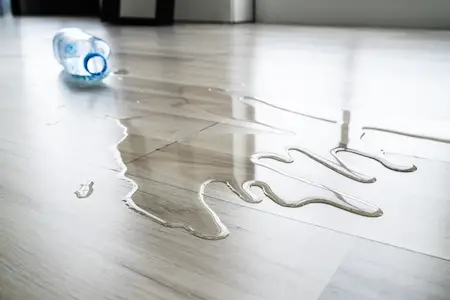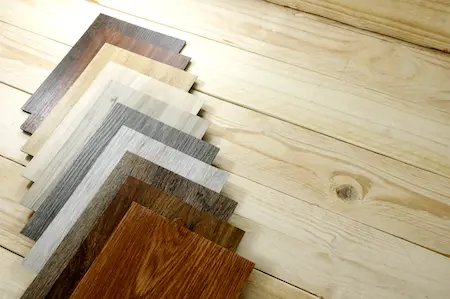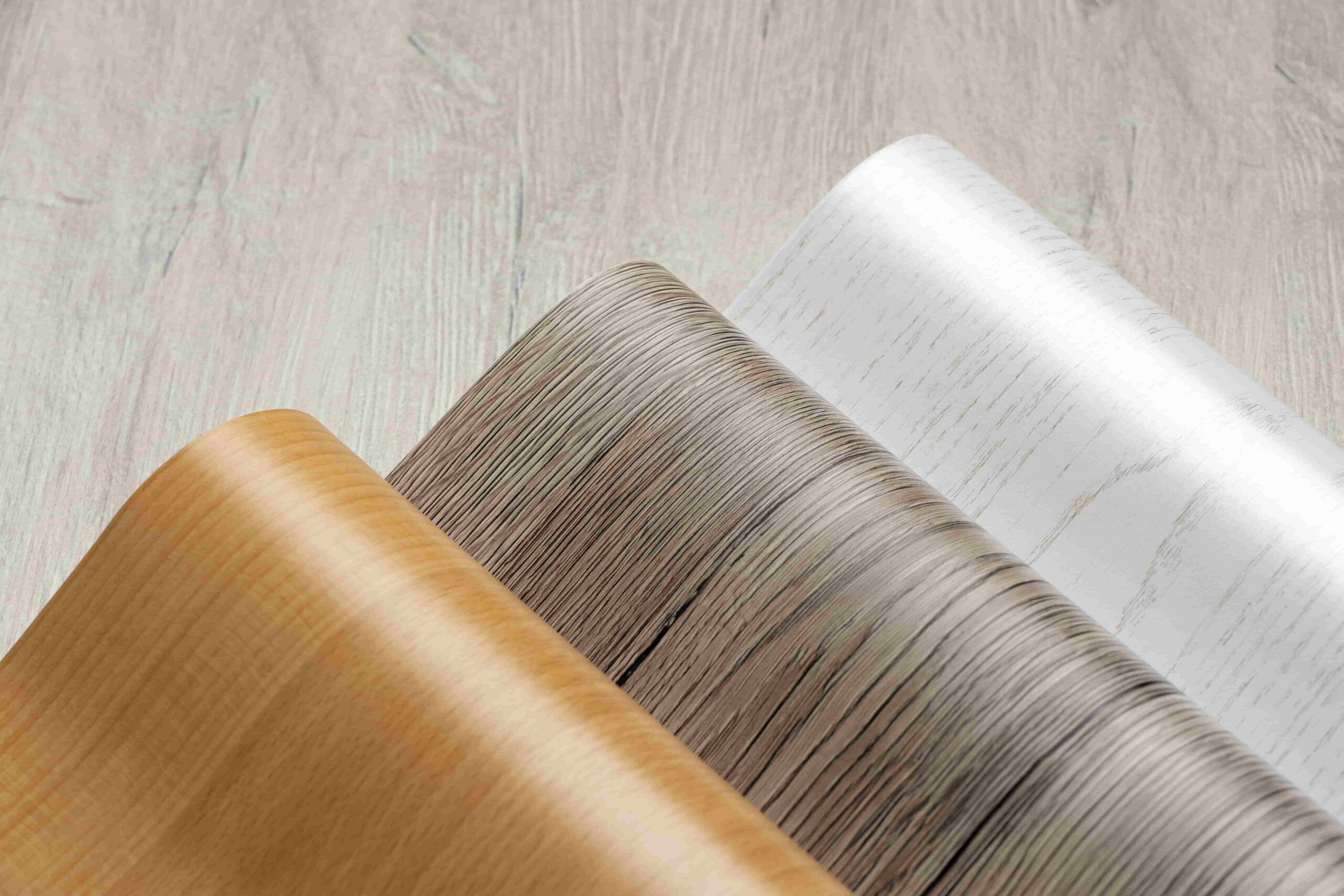When it comes to selecting the ideal flooring for your home or business, the decision can be overwhelming due to the myriad of options available. One such option, sheet vinyl flooring, often emerges as a plausible contender.
As with any material, understanding the pros and cons of sheet vinyl flooring is crucial in making an informed choice. This article aims to delve into this topic, providing a balanced overview to assist you in your decision-making process.
Sheet vinyl flooring, a versatile and cost-effective choice, is a synthetic flooring material that is highly resilient and durable. It is manufactured in large rolls, which allows for a seamless installation in wider spaces.
Aesthetically, sheet vinyl offers a wide array of designs from classic to contemporary, closely mimicking the look of natural materials such as wood, stone, or ceramic, without the associated cost or maintenance.
Its multilayer construction, including a wear layer and a cushioned core, provides comfort underfoot while also resisting scratches, scuffs, or stains, making it an appealing choice for high-traffic areas.
Pros of Sheet Vinyl Flooring
1. Affordability of Sheet Vinyl Flooring

One of the significant advantages of sheet vinyl flooring is its affordability, making it an approachable choice for many homeowners and businesses.
Cost of Material: Sheet vinyl flooring is relatively inexpensive compared to other flooring options. The price per square foot can vary depending on the quality and style, but it often significantly undercuts the cost of materials like hardwood, tile, or stone.
Installation Costs: Installation for sheet vinyl flooring is generally less expensive than other materials. Its large roll format simplifies the installation process, often making it quicker and more efficient than installing individual tiles or planks. Some homeowners even opt for DIY installation, saving on the cost of professional labor.
Maintenance Costs: Sheet vinyl flooring requires minimal maintenance, which can lead to long-term savings. Unlike natural materials, it doesn’t need regular sealing or special cleaning products. Routine sweeping and mopping are typically sufficient to keep this flooring in good condition.
Replacement Costs: Given its durability, sheet vinyl flooring tends to last longer than other low-cost flooring options, which can mean savings on replacement costs in the long run. When it does need replacing, the cost of new sheet vinyl remains consistently affordable.
Overall, the affordability of sheet vinyl extends beyond the initial purchase price, presenting cost benefits at every stage from installation through to maintenance and replacement.
2. Durability
Resistance to Damage: One of the primary attributes of sheet vinyl is its remarkable resistance to common forms of damage. It is highly resilient to scratches, dents, and stains, making it a suitable choice for high-traffic areas in homes and businesses.
Water Resistance: Sheet vinyl flooring is almost impervious to water damage, an advantage not shared by many other types of flooring. This makes it an ideal option for areas prone to moisture, such as bathrooms, kitchens, and laundry rooms.
Longevity: Thanks to its robust characteristics, sheet vinyl flooring can last for many years, even under heavy use. The longevity of this flooring type reduces the frequency of replacements and the associated costs, making it a cost-effective long-term solution.
Resilience to Fading: Unlike some other flooring materials, sheet vinyl maintains its color and pattern through years of exposure to sunlight and wear.
This ensures that your flooring continues to look new and vibrant for longer periods.
3. Ease of Installation
Sheet vinyl flooring is known for its simplicity and ease of installation, a feature that also contributes to its cost-effectiveness.
Preparation: The preparation involved in installing sheet vinyl is relatively straightforward. The surface needs to be flat, clean, and dry, which can often be achieved with minimal effort.
Cuts Easily: Sheet vinyl, unlike some other flooring materials, can be easily cut to size with a utility knife, allowing for custom fitting around corners, edges, and fixtures.
No Need for Underlayment: Most types of sheet vinyl do not require an underlayment, which eliminates a step in the installation process, saving time and money.
One-Piece Installation: Due to its design, sheet vinyl flooring can often be installed as one large sheet, especially in smaller rooms.
This one-piece installation method not only simplifies the process but also eliminates seams that could potentially allow moisture to seep underneath.
DIY-Friendly: The simplicity of the installation process makes sheet vinyl flooring a popular option for DIY enthusiasts. For those who prefer professional installation, the process is typically quicker (and therefore cheaper) than with many other flooring options.
4. Water-Resistant

One of the major advantages of sheet vinyl flooring is its excellent water resistance. This feature makes it an ideal choice for areas in the home that are prone to moisture or water exposure, such as kitchens, bathrooms, and laundry rooms.
Sheet vinyl creates an almost seamless surface, drastically reducing the number of pathways through which water can seep down to the subfloor.
Unlike other flooring materials that can warp, swell, or rot due to moisture, sheet vinyl remains unaltered, thereby ensuring a longer lifespan and maintaining the aesthetic appeal of the floor over time.
This water resistance not only contributes to the durability of sheet vinyl flooring but also makes cleaning and maintenance a breeze, as spills can be quickly wiped away without causing damage.
5. Variety of Designs

Sheet vinyl flooring offers a wide variety of designs, mimicking the look of many different natural and man-made materials, allowing for a broad range of aesthetic options.
Wood-Like Sheet Vinyl: This design replicates the look of hardwood floors, providing the elegance of wood without its high maintenance and susceptibility to moisture damage.
Many homeowners opt for wood-like sheet vinyl for its affordability and its impressively realistic wood grain patterns, colors, and finishes.
Stone-Like Sheet Vinyl: Emulating the appearance of natural stone such as granite, marble, or slate, stone-like sheet vinyl offers a sophisticated and timeless look. Unlike real stone, this design doesn’t carry the risk of chipping or cracking, making it a sturdy and lower-cost alternative.
The stone-like sheet vinyl comes in various patterns and tones, suitable for both classical and contemporary interiors.
Tile-Like Sheet Vinyl: This design provides the aesthetic of ceramic or porcelain tile without the cold underfoot feeling or grout cleaning issues. Tile-like patterned sheet vinyl is easy to install, offering a wide range of colors and patterns, from geometric to intricate Mediterranean-inspired designs.
Abstract Sheet Vinyl: For those seeking a more contemporary and unique look, abstract sheet vinyl designs present an array of bold patterns and colors.
These can range from metallic effects to swirling, multi-colored patterns, providing a modern aesthetic and making a strong style statement.
Cons of Sheet Vinyl Flooring
1. Lack of luxury appeal
While sheet vinyl flooring offers many benefits, one drawback is its lack of luxury appeal. Unlike materials like hardwood, ceramic, or natural stone, sheet vinyl is not typically associated with high-end, luxurious interior designs.
Despite its ability to mimic these materials, it simply cannot recreate the depth, texture, and natural variation found in real wood grains or stone patterns. Its synthetic nature tends to be more obvious upon close inspection and touch, which may impact the perceived value and sophistication of the space.
Furthermore, because of its affordability, sheet vinyl is often used in commercial or high-traffic residential areas, which might contribute to its reputation as a less luxurious flooring option.
2. Difficulty in Repair
Another notable disadvantage of sheet vinyl flooring is the difficulty involved in its repair. Due to its sheet form installation, damage such as rips, scratches, or stains affects the entire flooring area.
Unlike tiles or hardwood flooring, where a single piece can be replaced if damaged, sheet vinyl often requires a more complex repair process. In most cases, a professional may be needed to cut out the damaged area and seamlessly blend in a replacement piece.
Furthermore, finding an exact match might be difficult, especially for patterns that have been discontinued or for flooring that has faded over time. This can lead to noticeable discrepancies in the floor’s appearance.
If a satisfactory repair cannot be achieved, it might necessitate the replacement of the entire floor, leading to additional costs and inconvenience. This lack of easy repairability can be a significant downside for homeowners considering sheet vinyl flooring.
3. Environmental Concerns
One of the significant downsides of sheet vinyl flooring pertains to its environmental impact. The production process of this type of flooring heavily relies on petroleum, a non-renewable resource.
In addition, the manufacturing process results in the emission of volatile organic compounds (VOCs), which can contribute to air pollution and cause health problems for individuals exposed to these chemicals.
This issue extends beyond the manufacturing stage, as sheet vinyl flooring can continue to off-gas VOCs into the home environment long after installation.
Furthermore, the longevity of sheet vinyl flooring poses another environmental challenge. While its durability can be seen as an advantage in terms of lifespan, it becomes a concern at the end of its life cycle.
Unlike wood or tile flooring, which can be reused or recycled, sheet vinyl is typically destined for the landfill where it takes an incredibly long time to decompose. This disposal problem, combined with the emissions during production, means that sheet vinyl flooring has a sizable carbon footprint.
In addition, it’s worth noting that the synthetic nature of sheet vinyl flooring means it does not possess the eco-friendly qualities of natural materials like wood or stone.
These materials are often sourced sustainably and can be returned to the environment at the end of their life cycle, whereas vinyl is a man-made product that consumes resources and emits pollutants from production to disposal.
4. Susceptible to Damage
While sheet vinyl flooring holds up well against everyday wear and tear, one should not overlook its susceptibility to certain types of damage.
First, sharp objects can be particularly detrimental. If a sharp object is dropped or dragged across the floor, it can create a gouge or scratch that is difficult, if not impossible, to repair.
The replacement of the damaged area often requires professional assistance and may lead to noticeable color mismatches between the new and old sections, due to fading of the original material.
Secondly, sheet vinyl can be compromised by prolonged exposure to direct sunlight. Constant sunshine can lead to discoloration and warping of the material, spoiling the appearance over time.
Moreover, heavy furniture or appliances can dent or even tear the vinyl, which is softer than other flooring options like hardwood or tile. Such dents can be permanent, especially if the furniture piece remains stationary for a long period.
While sheet vinyl flooring is water-resistant, it is not entirely immune to water damage. If water seeps through the seams or around the edges and is allowed to sit for an extended period, it can cause the adhesive to loosen and the flooring to curl up at the edges.
Related Topics:
Conclusion
Sheet vinyl flooring presents an array of advantages and drawbacks that should be thoroughly evaluated to make an informed decision. Its affordability, durability, ease of installation, water resistance, and broad range of design options make it a compelling choice for many homeowners.
However, its perceived lack of luxury appeal, difficulty in repair, environmental concerns, and susceptibility to certain types of damage are factors that need to be considered. As such, the choice of sheet vinyl flooring, like any other material, should align with your specific needs, lifestyle, budget, and design preferences.
FAQs
Is sheet vinyl flooring suitable for high-traffic areas?
Yes, sheet vinyl flooring is an excellent choice for high-traffic areas as it’s durable and stands up well to heavy footfall. However, keep in mind that while it’s resistant to wear and tear, sharp objects and heavy furniture can dent or tear the material.
Can I install sheet vinyl flooring by myself?
While sheet vinyl flooring is relatively easier to install than other flooring options, it’s recommended to hire a professional for the task. An incorrect or poor installation can lead to issues like gaps, bubbles, and curling edges.
How does sheet vinyl flooring react to sunlight?
Prolonged exposure to direct sunlight can cause sheet vinyl flooring to discolor and warp over time. Therefore, it’s best to install blinds, curtains, or other sun-blocking window treatments if your vinyl floor is in a sun-exposed room.


2 thoughts on “Weighing The Pros And Cons Of Sheet Vinyl Flooring”